
Emotional Reaction Tracker
This tool helps you recognize and track your emotional responses to a pheochromocytoma diagnosis. Select the emotions you're experiencing most often and get personalized coping suggestions.
Select Your Current Emotions
When doctors say you have pheochromocytoma is a rare, usually benign tumor that grows in the adrenal gland and releases excess stress hormones like adrenaline and norepinephrine, the news can feel like a punch to the gut. Beyond the medical facts, the emotional fallout can be just as intense, and it’s something many patients aren’t prepared for.
Key Takeaways
- Receiving a pheochromocytoma diagnosis often triggers fear, anxiety, grief, and even anger.
- Understanding why these emotions surface helps you manage them more effectively.
- Practical coping tools - from mindfulness to professional counseling - can lessen emotional distress.
- Open communication with your health care team and trusted loved ones builds a stronger support network.
- Knowing when to seek extra mental‑health assistance prevents long‑term psychological complications.
What Exactly Is a Pheochromocytoma?
In plain terms, a pheochromocytoma is a tumor that forms in the adrenal gland - the tiny organ perched atop each kidney. The gland normally pumps out hormones that regulate blood pressure and heart rate. When a pheochromocytoma is present, it spews out too much adrenaline and norepinephrine, leading to sudden spikes in blood pressure, heart‑palpitations, headaches, and sweating.
Diagnosis typically involves blood or urine tests that measure catecholamine levels, followed by imaging such as a CT scan or MRI to locate the tumor. Though the medical steps are clear, the emotional journey that starts the moment you hear the word "tumor" is anything but.
Why Emotions Run High After the Diagnosis
Our brains interpret health‑related threats through a built‑in alarm system. When a rare condition like pheochromocytoma is mentioned, the brain floods the body with cortisol and adrenaline - the same chemicals the tumor itself produces. This physiological reaction amplifies feelings of fear and helplessness, creating a feedback loop that can spiral quickly.
Beyond the biology, the rarity of the disease adds a layer of uncertainty. Most patients can’t find a friend or family member who has walked the same path, which often leads to feelings of isolation. The unknown‑factor fuels anxiety and makes it harder to trust the treatment plan.
Common Emotional Reactions
- Fear of the unknown: Questions like "Will I die?" or "Will I ever feel normal again?" dominate the mind.
- Anxiety about surgery: Since surgical removal is the primary cure, the prospect of an operation can trigger panic.
- Grief and loss: Patients mourn the sudden intrusion of a serious illness into their lives.
- Anger or resentment: It’s natural to feel angry at the body, at doctors, or at fate for bringing such a diagnosis.
- Depression: Persistent low mood may develop if the emotional storm isn’t addressed early.
These reactions aren’t signs of weakness - they’re normal human responses to a life‑changing event.

Practical Coping Strategies
Managing the emotional impact is a mix of self‑care, mental‑health techniques, and external support. Below is a quick‑reference table that matches each strategy with its ideal use case.
| Strategy | How It Helps | When to Use It |
|---|---|---|
| Mindful Breathing | Calms the nervous system, reduces immediate panic | During sudden spikes of anxiety or before appointments |
| Journaling | Externalizes worries, tracks mood patterns | When thoughts feel overwhelming or repetitive |
| Professional Counseling | Provides tools to reframe negative thoughts, treats depression | If anxiety or sadness persists >2 weeks |
| Support Groups | Reduces isolation, shares practical advice | When you crave connection with fellow patients |
| Physical Activity | Boosts endorphins, improves sleep quality | After doctor confirms it’s safe post‑surgery |
| Family Meetings | Aligns everyone on treatment plan, clarifies roles | Before major medical decisions |
Pick one or two strategies that feel doable today. Consistency beats intensity - a five‑minute breathing exercise every morning can be more effective than a one‑hour session once a month.
Communicating with Your Health‑Care Team
Doctors are trained to explain the medical side; they also expect you to ask about the emotional side. Bring a list of questions to each visit, such as:
- What are the short‑term and long‑term side effects of surgery?
- Can you recommend a therapist who specializes in chronic illness?
- Are there patient‑education resources or support groups you trust?
- How will my hormone levels be monitored after treatment?
When you clearly state your emotional concerns, the team can refer you to a counselor or a social worker who knows how to navigate cancer‑type anxiety, even though pheochromocytoma isn’t cancer.
Support Networks That Really Help
Finding the right community makes a huge difference. Here are three reliable avenues:
- National Pheochromocytoma Association (NPA): Offers webinars, patient stories, and a moderated forum where you can ask questions anonymously.
- Local Hospital Support Groups: Many major medical centers host monthly meetings for rare‑tumor patients. The face‑to‑face format builds trust quickly.
- Online Peer Platforms: Apps like PatientsLikeMe let you track symptoms and connect with others worldwide. The data‑driven vibe appeals to people who like numbers.
When you join a group, start by listening. Share only what feels comfortable - you control the narrative.
When to Seek Professional Mental‑Health Help
It’s normal to feel a roller‑coaster of emotions, but certain red flags signal that you need extra support:
- Persistent sadness lasting more than two weeks, accompanied by loss of interest in daily activities.
- Thoughts of self‑harm or hopelessness.
- Severe panic attacks that interfere with work or sleep.
- Physical symptoms that worsen despite medical treatment (e.g., unexplained headaches, weight loss).
If any of these appear, schedule a session with a licensed therapist, psychiatrist, or your primary care doctor. Early intervention prevents the emotional strain from becoming a chronic condition.
Practical Checklist for the First Month After Diagnosis
- Write down all questions for your next doctor visit.
- Schedule a meeting with a mental‑health professional.
- Identify one trusted family member or friend to be your "go‑to" for emotional check‑ins.
- Join at least one online or in‑person support group.
- Start a daily mindfulness or breathing routine - even 3 minutes counts.
- Keep a symptom journal to track both physical and emotional changes.
- Ask your doctor about any lifestyle adjustments (diet, exercise) that can lower hormone spikes.
Cross each item off as you complete it; the visual progress helps combat the feeling of being stuck.

Frequently Asked Questions
Can a pheochromocytoma be fatal if left untreated?
Yes. Untreated tumors can cause dangerous spikes in blood pressure, leading to heart attack, stroke, or organ damage. Early surgical removal dramatically reduces these risks.
Is it normal to feel depression after the diagnosis?
Absolutely. The shock of a serious medical finding often triggers a depressive response. If symptoms linger, professional help is recommended.
What should I tell my employer about my condition?
You’re not required to disclose details, but sharing that you may need occasional medical appointments helps set realistic expectations. If you need time off for surgery, discuss leave policies early.
Do support groups really help?
Most patients report feeling less isolated and more empowered after joining a group. Hearing others’ coping tricks can give you practical ideas you hadn’t considered.
Is medication ever needed after surgery?
In some cases, doctors prescribe short‑term blood‑pressure meds to ease the transition as hormone levels normalize. Your endocrinologist will tailor the plan to your specific lab results.
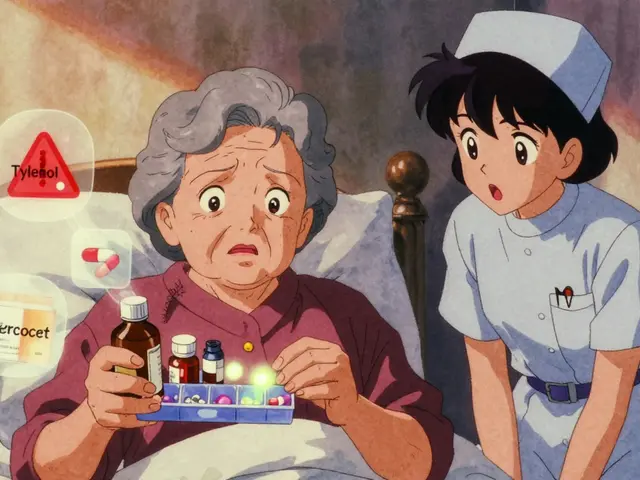
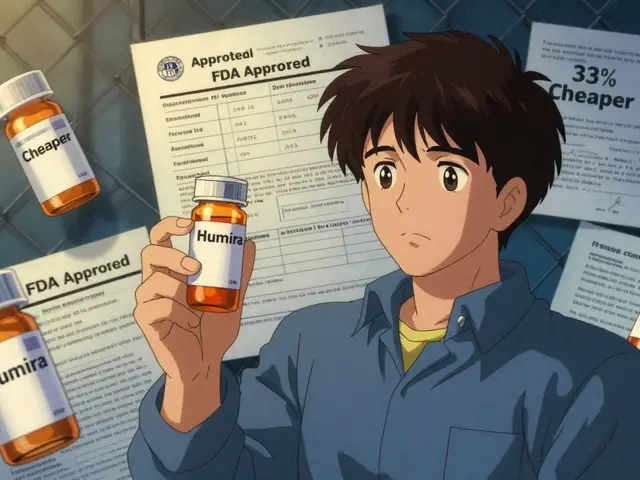
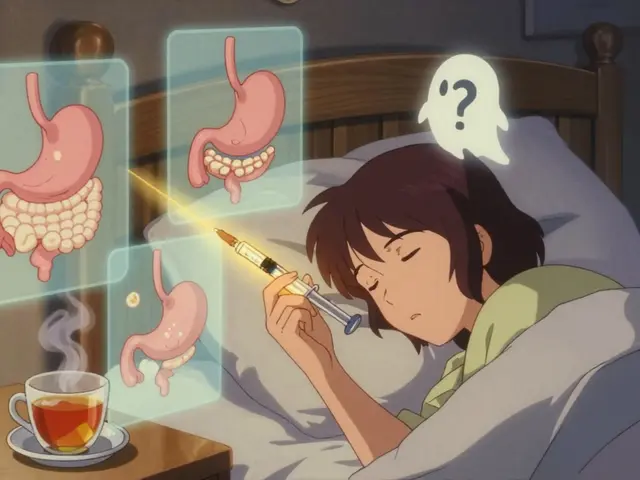
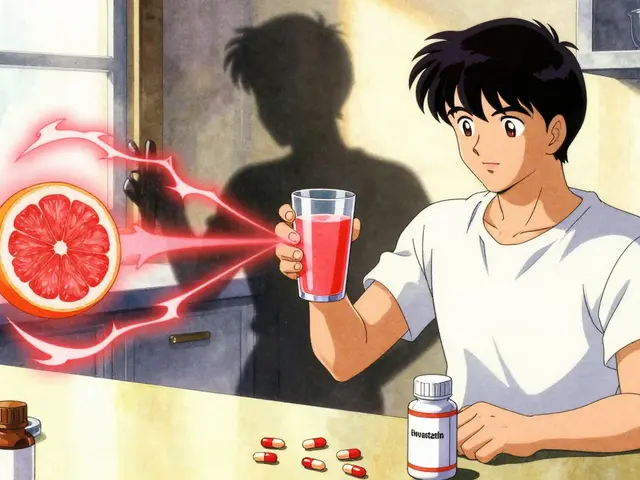
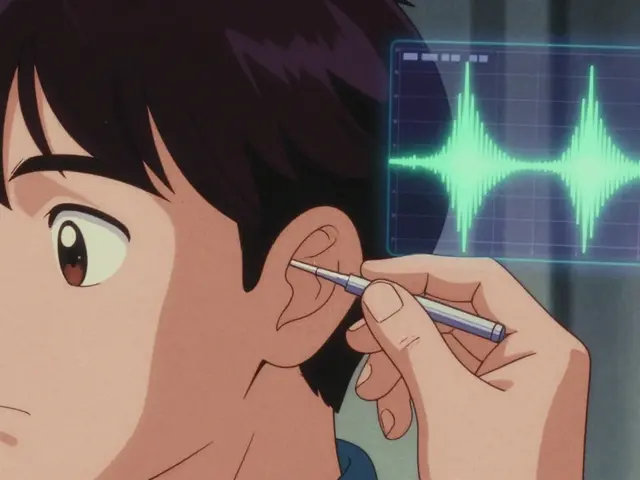
20 Comments
Hey there!; Thanks for putting together this thorough guide; the detail is impressive, and the practical steps are exactly what many patients need; I especially appreciate the clear breakdown of coping strategies-mindful breathing, journaling, and support groups-because they’re easy to adopt; Keep up the great work, and let’s keep spreading awareness!.
While the guide is solid, I noticed a few typos in the checklist-specifically the missing periods after each item; also, the term “rare‑tumor” should be hyphenated consistently.
Not bad, but it could use a bit more punch-maybe some real‑life stories to make it stick 😊.
The absence of data on post‑operative hormone fluctuations is a glaring omission; without that, patients can't gauge long‑term risks accurately.
Reading through this guide feels like stepping into a well‑lit hallway after wandering in darkness; each section shines a light on a different facet of the emotional journey that follows a pheochromocytoma diagnosis.
First, the emotional reaction tracker is a clever idea-by naming feelings such as fear, anxiety, grief, anger, and depression, it validates what many patients silently endure.
Second, the coping suggestions are concrete and varied, ranging from mindful breathing to professional counseling, which acknowledges that there is no one‑size‑fits‑all solution.
Third, the practical checklist for the first month offers a tangible roadmap, turning abstract advice into actionable steps; ticking boxes can be surprisingly therapeutic.
Fourth, the emphasis on open communication with the health‑care team reminds readers that medical professionals expect patients to voice emotional concerns, not just physical symptoms.
Fifth, the guide’s inclusion of support networks-national associations, hospital groups, and online platforms-provides multiple avenues for connection, crucial for a rare disease where isolation looms.
Moreover, the frequent reminders to seek professional mental‑health help when red‑flag symptoms appear underscore the seriousness of emotional well‑being.
It is also notable that the guide balances medical facts (hormone excess, surgical cure) with human stories, making the science feel less intimidating.
Readers are encouraged to journal, breathe, and join peer groups, all of which are evidence‑based strategies for reducing stress.
The tone remains compassionate yet empowering, never patronizing, which can inspire confidence in a patient who feels overwhelmed.
In addition, the FAQs address practical concerns like workplace disclosure and post‑surgical medication, showing an understanding of real‑world challenges.
Finally, the layout-clear headings, tables, and interactive elements-makes the information accessible for people at any stage of the diagnosis.
Overall, this guide acts as both a compass and a companion; it points the way while walking alongside the reader, reminding us that coping is a journey, not a single destination.
Oh great, another checklist-because nothing screams “I’m coping” like ticking boxes while your adrenal glands are throwing a party.
i think this guide is verry helpful but some partz are a little redundant i guess we could use more info about the diet after surgery.
Your suggestion to add dietary guidance is spot‑on; many patients ask about sodium and caffeine restrictions, so a brief note would be valuable.
Love the optimism here-reminding people that even a rare tumor can be tackled with the right mindset and support network.
While the supportive tone is appreciated, one must also acknowledge that not every patient has access to the resources mentioned; socioeconomic barriers can significantly affect outcomes.
This guide does an excellent job of laying out practical steps; I would add that connecting with a certified health coach can further personalize the coping plan.
Absolutely, a health coach can help translate the medical jargon into everyday actions, making the journey less daunting for patients and families alike.
Honestly, I think the whole medical establishment is hiding the real cure, and these guides are just smoke and mirrors-don’t trust the “experts”.
While I respect the right to question, the information presented aligns with peer‑reviewed research; dismissing it as a cover‑up undermines patient safety.
In my experience working with patients facing rare endocrine tumors, the integration of psychosocial support with medical treatment markedly improves adherence and quality of life. The guide’s emphasis on mindfulness, journaling, and peer support is consistent with evidence‑based practices. It is also prudent to highlight that postoperative monitoring of catecholamine levels should be continued for at least six months, as delayed recurrence, though rare, can occur. Additionally, patients often benefit from a multidisciplinary team including endocrinologists, surgeons, psychologists, and dietitians. Therefore, the checklist could be expanded to include a scheduled appointment with a mental‑health professional within two weeks of diagnosis, as early intervention has been shown to reduce the incidence of major depressive episodes. Finally, offering resources for financial counseling can alleviate the stress associated with treatment costs, which is an often‑overlooked aspect of comprehensive care.
Excellent points; I will incorporate a mental‑health referral timeline and financial counseling info into the next revision of the guide.
Wow, this guide really hits the spot! It’s packed with practical tips that feel doable, and the tone keeps you motivated-definitely a must‑read for anyone navigating a pheochromocytoma diagnosis.
yeah it’s cool but could use more real stories – people love hearing from others lol.
This guide is fine.
While concise, a brief mention of the importance of establishing a trusted support circle early on would round out the advice nicely.